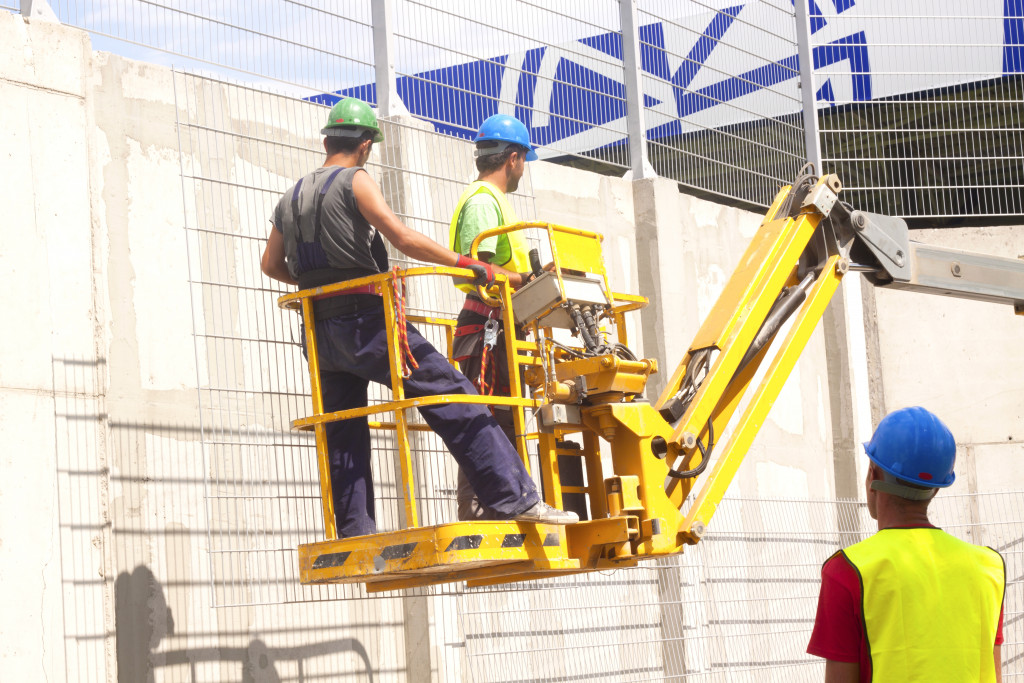Many people dream of owning their own construction company, but very few actually make this dream a reality. While it’s not an easy process, anyone with the right amount of passion and dedication can get started on building their own empire.
To get your business off the ground, there are seven steps you need to follow:

1. Pick a Business Name
The first thing you’ll need to do is pick a name for your business. You don’t have to stick with just “Construction” in your title if you feel that will be limited in terms of future growth. For example, “Little Construction LLC” is a fine way to start, but down the line, if you want to branch out into other areas such as residential or commercial buildings, then you may want to consider changing your company’s name.
2. Check with the Secretary of State and Your Local Licensing Board
You’ll need to check with your state and local licensing board if they require any special paperwork for you to start a construction business. While rules vary by location, it’s best if you check before you get started on anything else. The last thing you want is to be stuck in the middle of trying to open your business when you don’t have all the documentation required for getting off the ground.
3. Register as an LLC or Corporation
Once you’ve gotten confirmation from your licensing board that nothing will prevent you from starting up your own company, then it’s time to file some paperwork and register as a limited liability company (LLC) or a corporation. Here, you’ll be able to get a tax ID number and file the necessary documents for your new company. Some of this will likely apply more towards a corporation, while others may be more relevant towards an LLC, so make sure you research which option is best for your situation.
4. Get a Business License
Depending on your location, you may need to get a business license before being able to work on any job. Since most states require a general liability insurance policy for even the smallest of businesses, this will likely be an automatic step in getting started with your own company. Even if you’re just starting out with one employee, it’s best to check with your city or state about what they expect from any new construction companies looking for clients in their area.
5. Purchase the Right Equipment
Before you can do any real business, you’ll need to invest in the right construction equipment. Whether it’s mixing trucks or excavators, this is likely to be an ongoing expense that will vary depending on your needs and what jobs you’ll be bidding on. You can purchase a new one, but it will cost you a lot more money upfront. So you can also opt to buy used equipment; you will be easily able to find used heavy construction equipment for sale online.
6. Train Your Employees
You’ll also need to make sure you have the right employees on your team. While some construction companies hire people off the street with no experience, it’s best if everyone at least has some basic training on safety before doing any work for you on the job site. If they’ve never held a hammer or used power tools before, then you can always sign them up for an online course first so that way they’re not completely clueless about these things when they first start working for you.
7. Find Clients
Finally, there’s always a need for low-cost bids on construction jobs, no matter how large or small they are. You should consider keeping an eye out for local ads that pop up around your neighborhood that require contractors.
Also, speak with anyone who has recently had any work done on their homes or businesses about whether they were satisfied with the work and if they would recommend using that company again. If so, ask them to keep you in mind should someone mention needing a contractor for their next building project.
There are many benefits to owning your own construction business versus working for someone else. It gives you complete creative control over what you want to build and how things get done while also giving you the freedom to be flexible with hours and where you take job sites (instead of being tied down to one location). Construction is a growing industry and one where there are always going to be jobs available no matter how bad the economy gets, making it a good option to consider starting your own construction company.

